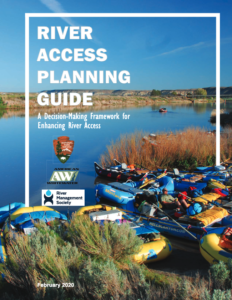Resolution of the Section 401 Clean Water Act cases and the FPA pre-emption case
The last couple of months have offered some important victories and a win/draw in the three Section 401 cases that some California environmental groups have laid the groundwork for and litigated on. These cases were in two federal circuit courts and the California Supreme Court.
As many of you may recall, the federal Clean Water Act Section 401 vests water quality certification authority with certain tribal governments and the states. This gives the states/tribes a key role in affecting the once-in-a-generation-or-two relicensing of hydroelectric projects under the jurisdiction of the Federal Energy Regulatory Commission (FERC). Using their loss in the Hoopa Valley Tribe v. FERC case in the DC Circuit court of appeals, FERC has been waiving the states’ certification authority (or waiver is being sought in a number of water quality certification proceedings), something that the recent litigation victories have now mitigated, at least for an important subset of certifications going forward — and in most cases if state and tribal practices include good certification-authority ‘hygiene,’ for future proceedings.
The most recent case involved our challenge in the 9th Circuit to FERC’s waiver of state certification authority in the relicensing of the Nevada Irrigation District’s Yuba-Bear River project, the Yuba County Water Agency’s Yuba River Development project (New Bullards Bar), and the Merced Irrigation District’s Merced River hydro dams. The waiver was granted at the request of the licensees, who argued that the withdraw-and-resubmit practice of tolling the Clean Water Act certification deadline was illegal under Hoopa. The court did not overturn the wrongly decided Hoopa case, rather it unanimously decided that the waivers did not comply with the fact set in Hoopa. Nevertheless, it was a clean and important win. The hydropower project licensees may, of course, request en banc review or for the U.S. Supreme Court to take up the case. Our view is that it will be an uphill climb for them from here. The Water and Power Law Group and the Western Environmental Law Center represented the environmental groups.
The Turlock and Modesto Irrigation Districts requested that FERC waive state certification authority on the basis that the denial-of-certification-and-resubmit practice to toll the certification deadline was also illegal under Hoopa. This time FERC refused to waive, and instead of being the plaintiffs, we were intervenors in the case defending FERC. And this time the DC Circuit held that the Hoopa decision did not apply and affirmed FERC’s decision to deny waiver. The Districts are requesting an en banc review. Morrison Foerster was also part of the environmentalist legal team on this one.
The Cal Supremes decision arose from the state Appellate Court in Sacramento’s sua sponte idea and decision that CEQA challenges of state EIRs implementing the states’ roles in the federal Clean Water Act water quality certification were federally pre-empted by the Federal Power Act. The Supreme Court justices were pretty confused by the whole issue. In the end, the court took the easy way out and decided on the specialized fact set involved in this case that the that the state has the right to decide on its own procedures on whether it should seek relicensing or not for its Oroville Dam complex. The more important question that arose sua sponte is whether the federal Clean Water Act’s delegation of certification authority to the states and certain tribes is federally pre-empted by the federal Federal Power Act. This issue was not decided. We may have to litigate this one again if dam owners want to take their chances in state court again on this basic issue.
There’s still likely work to be done in the litigation sphere in the 401 hydro world in California and the nation, but these cases will help to establish some of the legal rules of the road.
Of course there is also the ongoing EPA rulemaking on the 401 rule — and apparently a “deal” with Senator Manchin to get 401 and NEPA off his back. So it does never end.
Thanks to the workers in this vineyard though. We’ve won some important victories that may help us wind down this path into the future.
By Ron Stork


